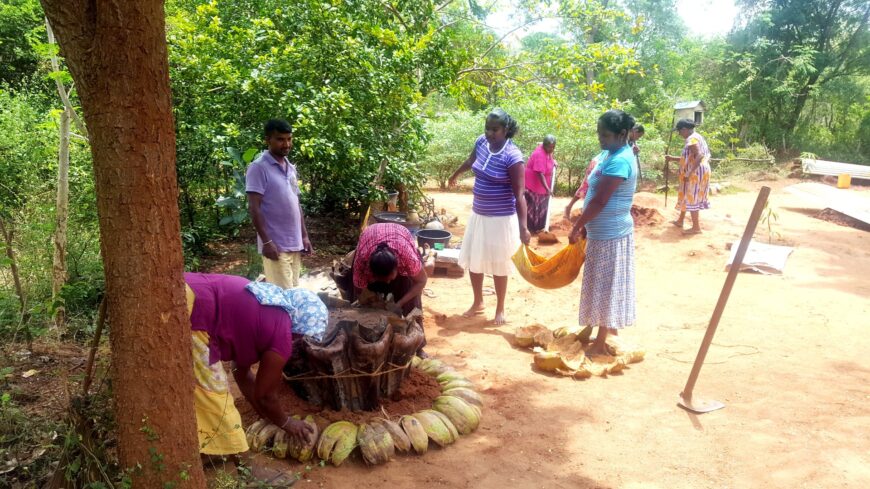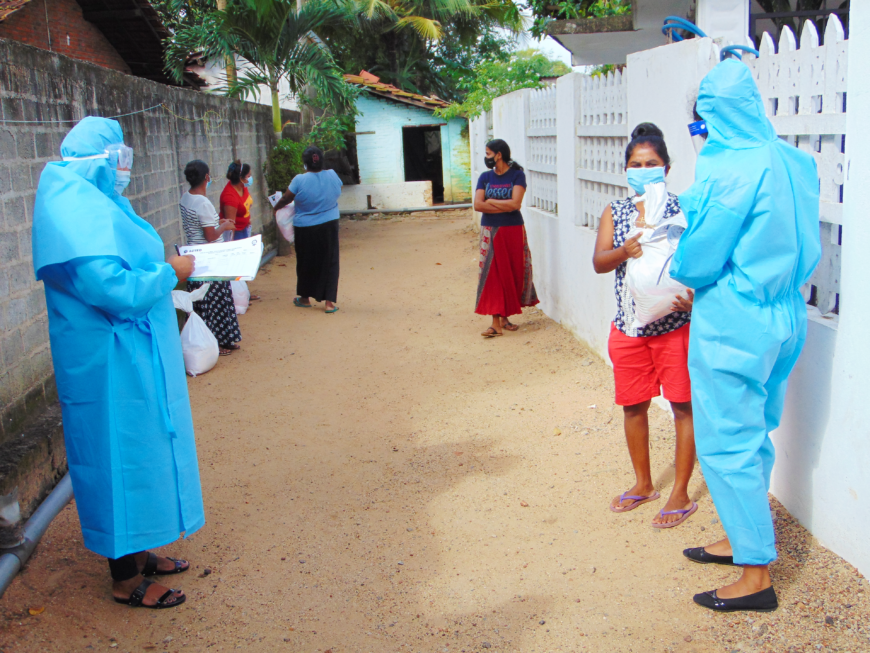Sri Lanka: how ACTED supports the most vulnerable communities facing the crisis
In 2022, ACTED joined forces with M6, a French TV channel hosting a TV show in Sri Lanka to highlight the realities people in the country currently face. Find out more about our actions in the country, including our project targeting women workers in the garment industry.
ACTED works in Sri Lanka since 2004. Our teams works with and for the most vulnerable communities facing the economic crisis, and work to promote an inclusive and environmentally friendly socio-economic development in the country.
Sri Lanka is currently facing its worst economic crisis since 1948. The population of 21 million faces shortages. Food inflation reached 80% in June 2022, a record level. Workers in farms and in factories are severely affected by rising prices and stagnating wages. Women are particularly affected.
Our actions and projects in Sri Lanka
Tackling violence against women textile workers
ACTED, World Vision Lanka and the Centre for Poverty Analysis (CEPA) have launched a multi-sectoral needs assessment covering 19 districts in Sri Lanka. Targeting the most marginalized and disproportionately affected groups, including the plantation sector, ethno-religious minorities and small businesses, this joint assessment will help develop evidence-based programs and responses to the current crisis. In addition, ACTED is conducting a rapid needs assessment with women garment factory workers in 8 zones with the support of the local NGO Women’s Centre, as part of the EU-funded “Speak Out” project, which aims to address violence against women garment workers.
The current crisis is exacerbating the vulnerabilities of at-risk populations who will be affected by seasonal monsoons that cause flooding, loss of livelihoods and displacement. ACTED is conducting a 60-day early response to equip and strengthen safety centers that provide shelter and WASH (Water, Sanitation and Hygiene) facilities to affected people. Disaster management centers have been provided with response kits and have had their capacities strengthened. Through “Cash for Work” programs, ACTED is helping communities build resilience to the impacts of the rains and floods, and injecting cash into households that are experiencing financial difficulties.

